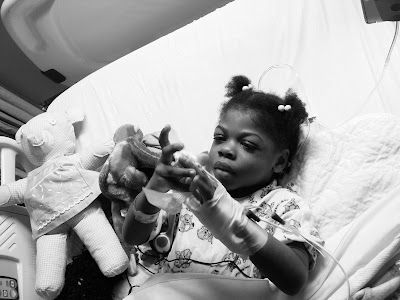
There are only so many words you can use to describe the earthquake that shook Haiti a year ago. You could start by calling it a catastrophe, or a disaster, or a tragedy; but really none of these words go very far, not once you've seen the pictures of dust covered men and women trapped interminably beneath piles of rubble, or the images of children with bandages where their appendages used to be. N0, words like catastrophe, disaster, and tragedy don't do this justice. Sadly, you could fill a whole book with mournful adjectives in an attempt to capture the true nature of this ______, but you would still fail at conveying to any real extent the unbearable reality.
The earthquake that struck Haiti was the most powerful quake to hit the earth in nearly 200 years. In a matter of minutes, the nation's capital was ripped to pieces; people's homes and communities crumbled down on top of them, crushing anywhere between 200 and 300 thousand people to death. Over 300,000 people were injured. Over 0ne million people were left without homes. And even those who had a house chose to stay in the streets for fear that one of the 52 aftershocks would finish off what the earthquake had left behind.
There are no words to describe the horrors that gripped Haiti; we simply cannot fathom what it must have been like to see the world come crashing down like that, or to rise from the rubble of a broken city knowing that loved ones and friends could be somewhere beneath the sea of snapped concrete slabs.
There are only question marks.
It has been a year since the earthquake. A year of tent cities, a year of poor access to drinking water, a year of cholera, and political unrest, and re-surging gang violence. They say it may take a decade and billions of dollars to return Haiti to where it was before the earthquake. An entire decade to pick up the pieces of a country that was already carrying far too great of a burden.
The initial response of the international community to the earthquake was absolutely incredible. The entire world responded to the crisis in a way that the world has most likely never seen before. But that time has passed, there are other issues in the news and in our minds.It is difficult to dwell on things as dark as this, and in the face of a problem characterized by big black question marks, it is a challenge to simply know where to begin.
I personally say that the beginning should have been long before the earthquake. It saddens me deeply that it took the most powerful earthquake in contemporary history, the death of thousands, and the rise of the most difficult crisis management operation in human history to awaken the minds and hearts of those just a few hundred miles away, let alone the rest of the world. Haiti has never been a stranger to injustice, or death, or disease, or natural disasters. Those ills have been irrevocably etched upon the walls of Haitian history, and their influence was only magnified by the international community's previous lack of interest. However, that wall cracked in 2010, and regardless of the past, there is only one present, and only one future.The biggest question mark of all then is what will be written of the new Haiti.
When the dust first settled, many argued that the grim reality of Haiti's present condition came with a silver lining, an opportunity to wipe the slate clean and start all over again. But as we are so often reminded, history has a cruel way of repeating itself. To think that you can just wipe away centuries of pain and forge a more perfect union is to ignore the reality that Haiti has already endured. However, there is hope, and no matter how dark the future may become, things can still be made right.
Haiti deserves more than the world has given it, and it deserves far more than its own government have taken from it. Ultimately, regardless of where past faults may be attributed, the country's fate rests delicately in the hands of its leaders, its diaspora, and the governments and citizens of the rest of the world. There will not be a quick fix, the question marks will not subside once the spread of cholera is suppressed, and even once the tents are replaced the country will need more; that is why we say dye mon, gen mon ... that behind every mountain is a mountain. Endurance however, is a trait written into the genome of every Haitian, they will not forget the struggle. . . what of the rest of us?
DO SOMETHING
REFLECT AND LEARN



















